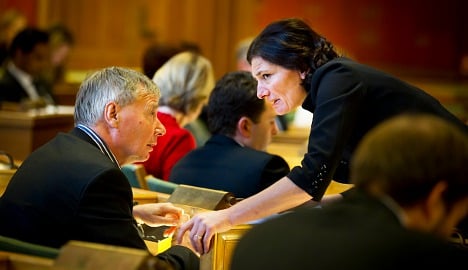Among those backing legislative change is Foreign Minister Jonas Gahr Støre, who sits on the board of a local Labour committee that wants parties to be able to present voters with a list of 15 hand-picked candidates.
In accordance with current rules, the party populated its list with ten names in this autumn’s city elections
This left voters with plenty of scope to select their own preferred candidates, enabling seven politicians with immigrant backgrounds to sail into winning positions after managing to secure enough personal votes for a seat.
“We’ve now got three representatives from Somalia and Somaliland. That’s in excess of what one might expect,” party veteran Rune Gerhardsen told newspaper VG.
Gerhardsen stressed that his desire for a rule change did not stem from any sense of dissatisfaction with the current councillors, but he did argue there was a need for greater balance.
“Comparatively small pressure groups can make relatively large gains when they apply enough resources. Ethnic groups have shown themselves to be good at mobilizing,” he said.
Abid Raja from the Liberal Party (Venstre) said he found the comments alarming.
“What he says about his own party colleagues with Somali backgrounds is way beneath his dignity,” Raja told news agency NTB.
“Instead of increasing the number of set candidates we should be going in the opposite direction and getting rid of it altogether.”
Raja pointed out that ethnic Norwegian candidates had also harvested their fair share of personal votes, with Rune Gerhardsen himself the main beneficiary. Of the Labour Party’s candidates, Gerhardsen and Libe Rieber-Mohn attracted the highest number of personal votes, followed by Abdullah Alsabeehg.
The 25-year-old Alsabeehg, whose family came to Norway as political refugees from Bahrain when he was very young, denied his election success had stemmed from a recruitment campaign targeting voters of the same ethnic background as himself.
Instead, he attributed his large personal vote haul to the backing he received from the Labour Party’s youth wing (AUF).
“I was the AUF’s youth candidate in the election and was supported by young people of various ethnic backgrounds from around the city,” he told NTB.
“I think it’s wrong to make a distinction between minority politicians and other politicians. Nobody uses the term minority footballer to describe Moa or Carew,” he added.
Among representatives of Norway’s other main parties, there was no support for the idea of lengthening pre-populated electoral lists.
“I can see that the Labour Party’s City Council group in Oslo is skewed, both from an ethnic and geographical perspective, but that just shows that party democracy is more or less dead within the Labour Party beyond the group of active immigrants,” said Conservative Party (Høyre) MP Per-Kristian Foss to politisk.no.
“That’s a problem for Oslo’s Labour Party; I don’t think parliament should change the election law,” he added.
Anders Anundsen from the Progress Party said Labour would be better advised to move in the exact opposite direction, a view supported by the Centre Party’s Per Olaf Lundteigen.
“Trust in politicians and political parties is dropping. That means voters should be given more of a say as to who gets elected in parliamentary, county, and municipal elections,” he told politisk.no.



 Please whitelist us to continue reading.
Please whitelist us to continue reading.
Member comments